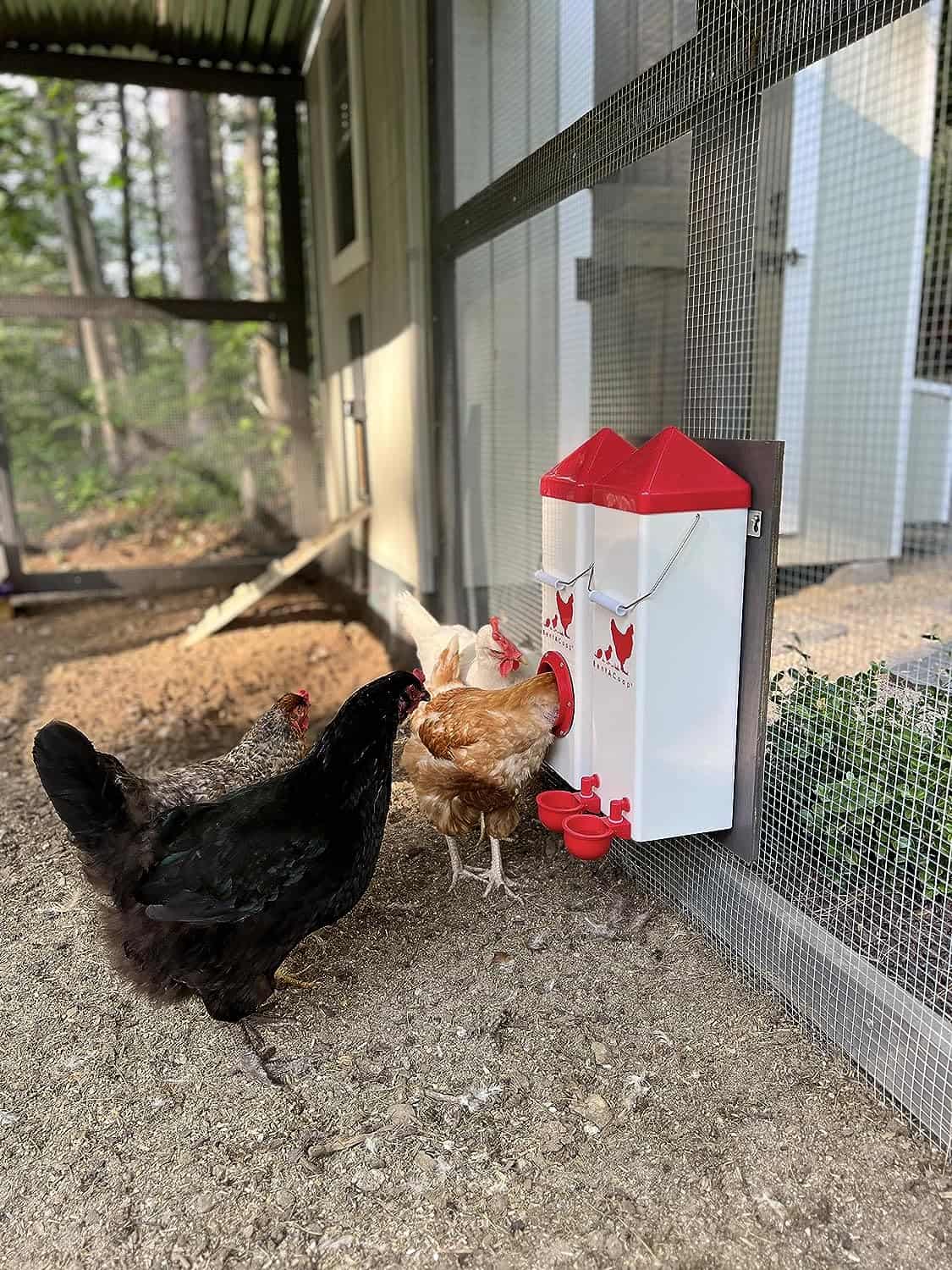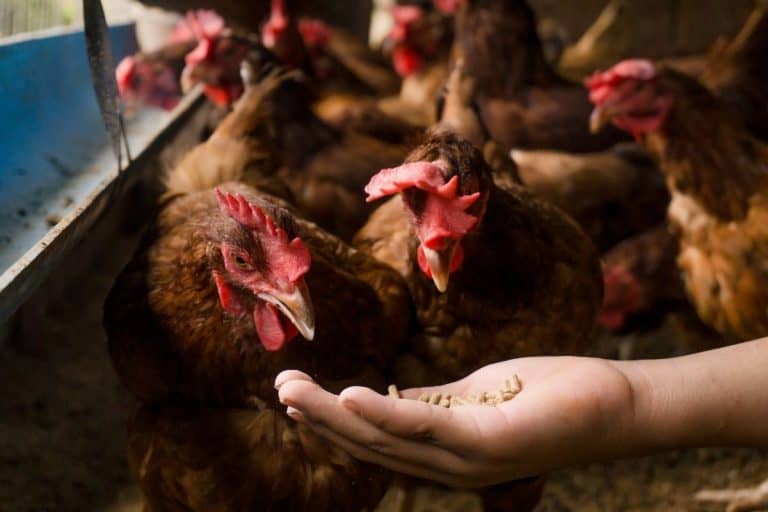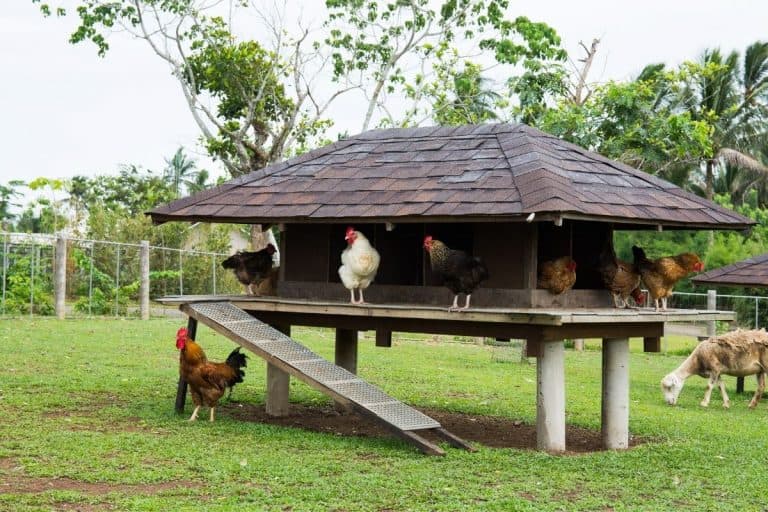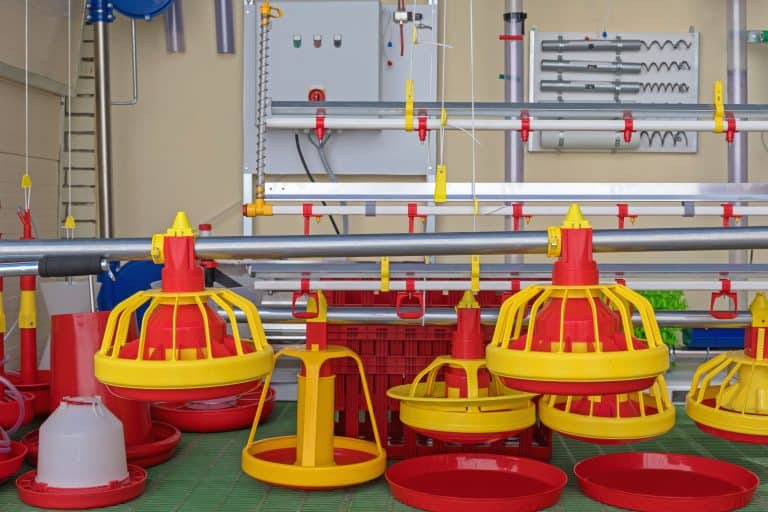Is It Cheaper To Have Chickens Or Buy Eggs? (Cost comparison)
Raising backyard chickens is rewarding thanks to their aid in personal sustainability, but whether or not you are saving money is debatable. There are many factors that go into raising chickens, from the first step that you take in choosing eggs vs live chicks to how big you will need your coop to be. But backyard chicken raising is on the rise, so many people are wondering, is it cheaper to have chickens or just buy eggs?
As a general rule, you’ll always find cheaper eggs in the store compared to the price of getting them with your flock. But when doing the cost analysis for a similar quality (like superior organic eggs) after the initial setup cost, the price difference between the two options is greatly reduced.
After getting through the initial cost of purchasing chicks and setting up the coop, buying 2 dozen organic eggs weekly is more expensive than keeping 4 chickens, but only by a very small amount.
When first starting the process of raising a flock of chickens, the cost that you incur will be much more intimidating than the regular maintenance cost. There is a lot to explain and take in so sit back and relax. This article will go over the details and comparison breakdown of raising a flock of backyard hens vs purchasing your eggs at the grocery store or farmers market.
Hey chicken buddies: Quick heads-up before going further! I've put together a list of stuff I use and love for my flock. If you're curious about what keeps my hens happy, click here to find out.
Is It Cheaper To Have Chickens Or Buy Eggs?
For the most part, many farmers and backyard chicken raisers say that they probably break even on their cost, but it doesn’t matter because they aren’t doing this to save themselves money.
If you insist on buying at least 2 dozen eggs a week at over 3$ a carton, you are saving yourself a small amount of money by having 4 laying hens.
There are so many different factors that go into the cost and responsibilities of raising a flock of chickens that it is hard to define that simply.
Figuring out how much you will need to plan on spending depends on several things, like what kind of chicks and how many are you going to raise, what kind of coop you use, the maintenance cost of feed and supplements. Don’t forget about unforeseeable repairs or veterinary bills.
After starting the process of purchasing or building a coop, getting your chicks and setting everything else up, you’ve definitely spent some money. Raising chickens is an economic adventure, even if you aren’t planning on making any financial profit off of your hens or eggs.
The best way to show the cost comparison is to break down the purchases into the start-up cost and the maintenance amount afterward.
Wait, I have some recommendations for you!
Before you go any further, I want you to take a look at some of the recommendations I've handpicked for you. I think these are essential items you should have for your chickens flock. You can check them out and buy them directly from Amazon.
 |  |  |  |
| Essential accessory for your coop | No more tripping over hoses! | Predator protection made easy | Comfort + style is possible |
Start-Up Costs For Raising Chickens For Their Eggs
One of the first things you need to do is check your local county and see if they have any rules, regulations or fees about having farm animals where you live. Some have restrictions and won’t allow them within certain areas or neighborhoods. Assuming that this all works out for you, you can start deciding what chickens you are going to raise in your flock.
Starting With Live Chicks VS Incubating Eggs
When researching, you will probably find that on paper, it looks like raising chickens from eggs and hatching them will be the cheapest option. This is honestly not true and is much more of a hassle than you would think.

You have to purchase an incubator for the eggs, and it takes about 3 weeks for them to hatch. You don’t just put the eggs inside the incubator and walk away for 21 days either, you still have to check on them several times a day and if you don’t have one that turns them for you, guess what, you’re doing it every few hours.
Then on top of that, you aren’t guaranteed that all of the eggs will hatch (about a 50% hatch rate), and you have no idea what gender you will get either. You could end up with a bunch of roosters instead of hens, and then what?
If you start off with live, already sexed chicks, you are already guaranteed live chicks and you’re not gambling on how many roosters vs hens you will have. Plus, you skip the incubating step, which is nice, unless you’re trying to teach a class of kindergarteners.
Below is a table to help break down the cost comparison of starting with eggs vs live chicks. Remember, purchasing eggs is a crapshoot, so you would need to purchase about twice as many as you intend on raising, assuming the 50% hatch rate is very close to accurate. These are all average and approximate costs, as the price of things does depend on your area and what breed of chicken you are going for.
| Raising from eggs | Raising from live chicks |
| 10 eggs = 50$ (approx 5$/egg) | 4 chicks = 20$ |
| Incubator 〜 100$ | Brooder box supplies 〜 70$ |
| Brooder box supplies, feeder, waterer 〜 100$ | Feeder, waterer 〜 30$ |
| Total cost = 250$ | Total cost = 120$ |
Another option is to start a flock of hens that you purchase at adulthood. They can be around 25$ to 30$ a piece, depending on the breed. You are skipping the stage of raising chicks, but you are also missing out on vital bonding that you can make with your hens as well. Many people looking to develop a relationship with their chickens will want to raise them since they were chicks.
The Chicken Coop And Run
The chicken coop should be the largest investment that you make. It is crucial to their health and wellbeing, and they spend plenty of time in it. Trying to cut costs on your chicken coop will ultimately end up with you spending more money in the long run on repairs and upkeep. Don’t try to be cheap or lazy, invest in a nice coop from the very beginning and you will certainly not regret it.
The average rule of thumb is around 5 sq feet per bird if they have a run, if not then they require about twice as much room in the coop. There should be enough space for them to exercise and feel comfortable. Plus, good ventilation to prevent respiratory issues.

For the ease of explaining the cost, we will have a hypothetical coop built for 4 hens. That’s about 16 sq feet total, assuming that it has a run. It is possible to build your own chicken coop, and plenty of people have made some impressive ones, but you can always just purchase a premade one instead if you don’t feel like you’re handy enough.
Premade wooden coops can cost as little as 170$ to as much as 330$, it just depends on your budget and what you think fits your hens the best. There are also plastic coops that tend to be much more expensive, usually around 200$ to 500$, but they dry very quickly and hold up well in rainy places. Wooden coops, however, are easier to repair.
The run depends, sometimes it is included in the chicken coop cost when you buy a premade one or a kit. If not, building one isn’t too terribly complicated.
Our hypothetical flock of 4 hens will require about 60 sq feet of run room available, which doesn’t add up to too much money, maybe around 25$ worth of fencing material, add a little more if you want to make a roof for them.
Feeders, Water Fountains and Nesting Boxes
These items are obviously crucial since they are how your chicken eats, drinks, sleeps and lays their eggs. Thankfully, these are not typically very expensive, especially compared to the cost of the chicken coop itself.
Most backyard flocks can make due with a small waterer (metal is most durable), they usually run around 9$ – 35$. A feeder is another cheaper item, they can be found for as little as 8$ to as much as 60$.
Nesting boxes and perches often come with the coop that you buy. In instances where they don’t, you can simply build or purchase premade ones from your local feed store or online. Some are as cheap as 10$ – 15$ a piece and you should plan on having one nesting box for every 3 or 4 hens. For our flock of 4, let’s say there are 2 nesting boxes in their coop. Perches are easy enough to build with some nails and a 2×4, your cost of lumber will be it.
| Supplies | Cost |
| Chicken Coop (wooden) | 170$ – 330$ |
| Run | 25$ – 50$ |
| Feeder | 8$ – 60$ |
| Water Fountain | 9$ – 35$ |
| Nesting Boxes | 10$ – 30$ |
| Total cost = | 222$ – 505$ |
Maintenance Cost Of Raising Chickens For Eggs
Now that you have gotten through the bulk of the most expensive part, you just have to keep up on your feed, supplements, bedding and other enrichment for your chickens. While it feels like we’re saving some money on these cheaper items, these are still costs that are recurring and will certainly add up over time.
It’s good to start your chickens on a basic feed, most of them only need about 6 ounces of food a day, so a 30 lb bag of feed should last our 4 hen flock a little less than a month. Not too shabby, really. Layer feed can cost between 28$ and 60$ for a 25 or 30lb bag.
Chickens also require several supplements, such as calcium and grit, in order for them to stay healthy and produce strong and nutritious eggs. An easy way to deliver calcium is through ground-up oyster shells which cost about 5$ for a bag, which should last over a month. A 5lb bag of insoluble grit is also about 5$ a bag and will last quite a while.
The average chicken farmer will probably use pine shaving as their bedding of choice in their chicken coop. Most shavings are pretty cheap and do a decent job at controlling odor. It is extremely important that the coop is cleaned weekly in order to prevent respiratory and other health complications from too much ammonia. This pine shaving bedding (34$ for a little less than 20lbs) will probably last our hypothetical flock of 4 about a month or so depending on how much you use, how much mess they make, and how often you clean it.
| Supplies | Approximate Monthly Cost |
| Layer Feed | 28$ – 60$ |
| Supplements | $10 |
| Bedding | 34$ |
| Total = | 72$ – 104$ |
There are other costs associated with raising chickens that are somewhat impossible to quantify. Such as water and electric bill increases, veterinary bills, enclosure repairs and other unforeseeable expenses. It would be pertinent to have a cushion for any of these potential costs that you can’t predict.
Is Raising Chickens Worth The Money?
It is so difficult to put a monetary value on raising chickens, but I would say that it is certainly worth it. Especially if you have the time and resources to turn it into an enjoyable hobby as well.
While raising a flock has its rewards, it is still difficult to say that financially you are going to save a lot of money. Eggs from the store are pretty cheap and easy after all.
For the sake of numbers, I will make one final cost comparison table for us to use with our hypothetical flock of hens. These numbers are based on the average egg-laying hen for a year.
| Eggs per year with your flock | 4 hens/200 per hen = 800 eggs/year |
| Egg cost in store | 1.82$/dozen & 3$/dozen organic eggs |
| Yearly cost for housing chickens | 900$ – 1250$ minimum |
| Yearly cost for feeding chickens | 360$ – 720$ minimum |
| Total cost of raising chickens | 1260$ – 1970$ minimum (after the initial cost) |
| Total cost of buying the same amount of eggs | 121$ (cheap) – 200$ (organic) |
I think it’s obvious that raising hens, in the long run, will not be saving your family much money, unless you guys eat an impressive number of eggs every week or you have a really popular baking or breakfast business.
Don’t forget that the first year of raising your chickens will render the least amount of profit or monetary benefit due to your initial costs not paying off yet.
Here’s the thing, after a few years of establishing your flock and getting the hang of your costs, it is likely that it will be around a 50 cent per egg yield, which for most people, the labor of love is totally worth it.
Related article: Why Do Chickens Lay Eggs Every Day?







